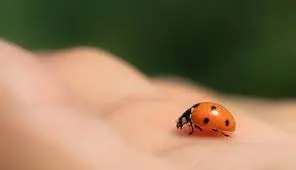Babies may have a reputation for exploring their world with their mouths, but toddlers seem to choose the most disgusting things to investigate. While some commonly ingested toddler choices are clearly gross, but obviously okay, such as paste and crayons dawning the non-toxic stamp, other choices leave you scratching your head and heading to the nearest search engine. One such item that ranks high on the questionably-consumed meter is bugs.
Why do toddlers like bugs so much?
I’d love to offer you a scientifically-supported answer here, but a mom-supported theory is the best I can do. I’d wager the fascination most toddler-aged children acquire for bugs has to do with the fact that they meet several no-no requirements such as being small and dirty, and gain a that’s-not-a-toy, ew, or another generally negative reaction from mom or dad, all while moving in interesting ways. From the very first time my toddler spotted a house fly trapped in the window he fell in love with all that creeped and crawled. Next thing I knew he was hunting and then consuming any bug he could find.
Is it dangerous for my toddler to eat bugs?
About 1,400 species of bug are known to be edible, and in some countries, they are actually common dinner-plate additions. Insects are actually proven to be healthier than most meats nutritionally. However many bugs only become edible when cooked, and some simply haven’t been tested. On top of this, you have to consider the danger of your toddler catching the insect to eat it. My toddler has already been stung by hornets and wasps several times now attempting to catch a snack. In some areas, poisonous spiders are also a concern (I live in Alaska myself thankfully.) There is also the risk that an insect has been exposed to pesticides outdoors before ending up in your toddler’s hands, and many pesticides can be toxic.
What can I do to stop my toddler from eating bugs?
In the end, the threat of injury from trying to catch bug and the possibility of consuming a not-safe-to-eat insect gives parents a good reason to try to deter this gross childhood behavior. In many cases, nature will deter your child’s behavior for you. For example, my toddler no longer tries to catch flying bugs as he associates them with being stung. As a parent, I wouldn’t say this is the safest way to teach your child not to eat creepy crawlies, but it is one benefit when it does happen.
What you can do is work on prevention. If you see spiders, bees, ants etc. in the house move them outside. You can decrease bug activity in your home by keeping it clean, sealing doors, windows and other entrance points well and using organic pest control methods such as lemon or sticky traps (keep them up high). Outdoors a border of used coffee grounds will both fertilize your yard and act as a pest deterrent. Other than that you can’t do much but keep an eye out and keep telling your child that bugs are not for eating.
What if my toddler does eat a bug?
I wouldn’t say it’s a medical emergency if your toddler does manage to down an insect, but you should keep an eye out for signs of sickness. Chances are pretty low that the actual consumption will cause any health issue, but be sure to check for bites or stings on your child’s hands especially in the case of spiders.
You may also enjoy:
Preventing and Treating Wasp Stings

